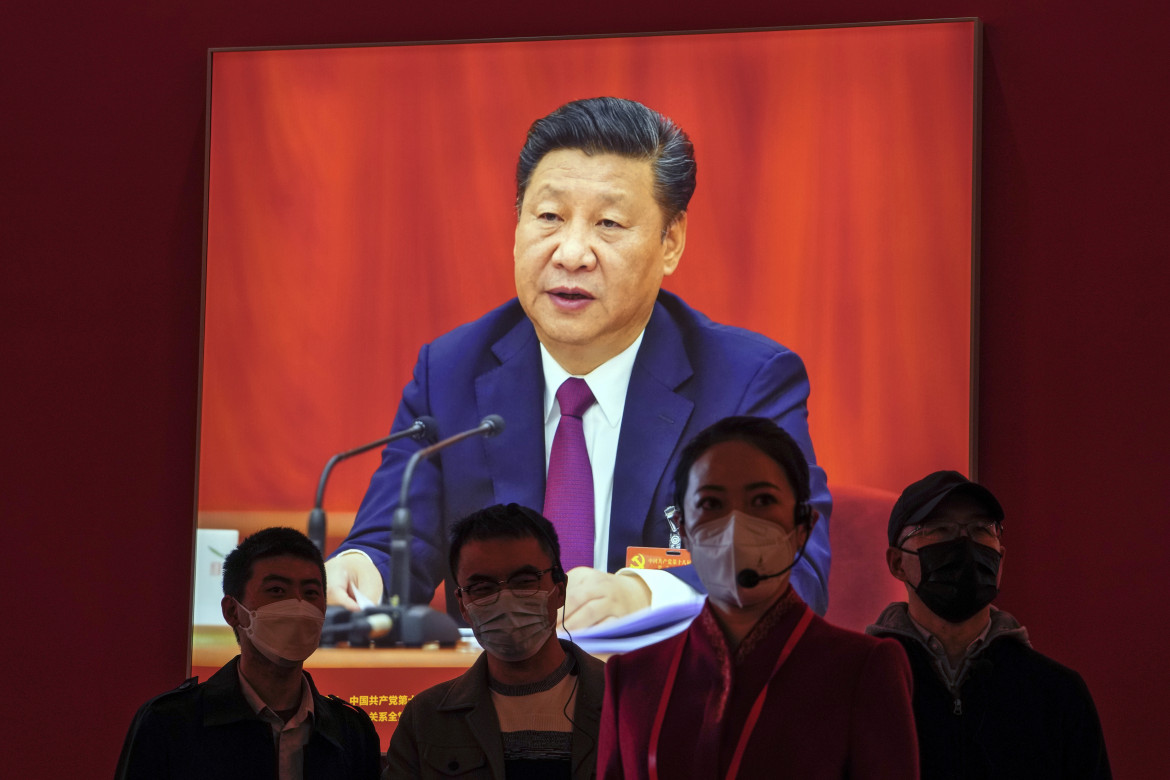Analysis
Xi’s priority is no longer (only) development, but ‘safety’
In view of the 20th Congress of the Communist Party, which opened on Sunday, Beijing is ready to slow down economic growth in the fight against Covid and the US obstacles on tech self-sufficiency.

It’s all about security – both that of Xi Jinping’s position at the “core” of the Communist Party of China, as the final communiqué of the 7th Plenum states, and the principle that reigns supreme in Xi’s China, even above economic development. And also the top focus of the authorities in Beijing on the eve of the 20th Congress.
It was highly unexpected to see two protest banners displayed on a bridge in Beijing’s Haidian district: “We want food, not PCR tests. We want freedom, not lockdowns. We want respect, not lies. We want reform, not a Cultural Revolution. We want a vote, not a leader. We want to be citizens, not slaves,” the first one read.
The second one called for a strike to “remove the dictatorial traitor Xi Jinping,” according to images circulated online. It was an isolated case, the protest action of one individual, but it is very rare to see protests directed against the leader. On Chinese social media, posts and comments about the incident have been blocked, as well as all related keywords.
On Sunday morning, 12 kilometers away from that bridge, in the Great Hall of the People in Tiananmen Square, Xi opened the event expected to award him a historic third term as general secretary. The Congress will also vote on amendments to the Party’s charter, which will most likely elevate the status of Xi’s doctrines and perhaps his role as well.
The Central Committee has praised Xi’s “extraordinary” achievements over the past five years. Among the battles won, they mentioned one that perhaps quite a few Chinese no longer want to fight: the one against the “Covid demon,” as they called it in March 2020. At the Congress, Xi will have the opportunity to give himself a medal for winning this “war.”
The zero Covid strategy has resulted in vastly lower numbers of deaths and contagions than in Western countries: in the Party’s view, that is not only a signal of the superiority of its governing model but also a symbol of their conception of the protection of “human rights with Chinese characteristics.”
Many expected that the restrictive approach might be relaxed soon after the Congress, but political and media rhetoric seems to say otherwise. In recent days, the People’s Daily has repeatedly praised the zero Covid strategy: “Fighting the epidemic is a test of the spirit,” read one article, while another condemned “war-weariness and wishful thinking.”
The Party seems ready to continue this war even at the cost of an economic slowdown that is already a fait accompli. The International Monetary Fund predicts that China’s GDP will grow by only 3.2% this year, far below the 5.5% initially predicted by the government. Youth unemployment is close to 20%, and for the first time in 30 years, the rest of Asia is seeing more growth while China is seeing less.
Then again, Xi has long made it clear that national security comes first. Since 2002, Chinese leaders have used to explicitly mention economic development as the “top priority” during the Congress. According to several analysts, Xi may abandon this phrase in favor of a slogan that calls for “balancing development and security.”
Xi started using this slogan in 2020 to put more emphasis on combating risks. Back in 2002, Jiang Zemin spoke of “two decades of strategic opportunities” that were opening up for China. In Xi’s view, those two decades might have indeed run out, making way for far stormier waters.
Accordingly, “navigation” as a metaphor is being used more and more, so much so that the title of “helmsman” might be resurrected for the leader. Also a prevalent theme is the predictable insistence on self-reliance, especially technological self-reliance. Joe Biden’s latest restrictions on semiconductors and artificial intelligence have made it definitively clear that the U.S. doesn’t just want to halt China’s rise in tech, but to try to roll it back.
A first response from Beijing came with the green light for the first mutual investment fund targeting Chinese and South Korean chipmakers. The goal is to build strong ties to Seoul’s industry giants, from Samsung to SK Hynix, who don’t like the moves towards decoupling coming from the U.S.
Originally published at https://ilmanifesto.it/la-priorita-di-xi-timoniere-in-pectore-non-e-piu-solo-lo-sviluppo-sicurezza on 2015-10-08
